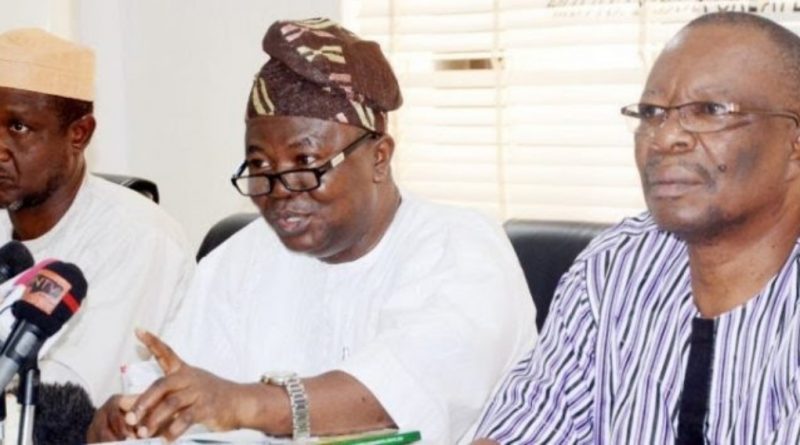Killing Nigerian universities with strikes
By Jide Osuntokun
I have many times in my quiet moments and when I meet junior colleagues still teaching in Nigerian universities wondered about the future of our youth and the existential challenge posed by current leaders of industrial unions in the universities to the future of universities and even of Nigeria itself.
When I joined the University of Ibadan in 1972 as a young lecturer, I felt called to serve almost as people feel called to serve God as pastors these days. Before coming back to Nigeria, I had taught at the universities of Western Ontario, London, Canada (1970-1971), and the West Indies, Cavehill Barbados (1971-1972).
If what I was looking for in life was money, I would have stayed on in Canada or the West Indies. As a Christian, I saw the divine hand of God directing my movement but I was a willing instrument in the hand of God. I could have refused to come home to contribute my own quota to the educational advancement of my country.
In my labour of love, I taught not only in the universities of Ibadan and Lagos but also in the universities of Jos and Maiduguri. I had in spite of health challenges to my wife, the best of times in Jos and a very happy time, good memories, and productive achievements in Maiduguri.
I have always liked teaching and the freedom one had and still have in academia compensated for whatever dissatisfaction one may have had in terms of inadequate monetary compensation and rewards.
The first time I felt jolted from my revelry of being called to teach rather than to earn a living was when in 1975 following a general strike by university staff, the government of General Yakubu Gowon asked workers who were not prepared to work to vacate their houses on university campuses as well as houses rented for them outside the university campuses.
Many of my senior colleagues began seriously to think about owning their own houses outside the campuses. Those of us following them also felt the need to interrogate our material conditions in the capitalist environment of Nigeria where even if one had taken a vow of poverty, one still had to think of the future of our innocent children.
ALSO READ: THE PLIGHT OF LECTURING IN NIGERIAN UNIVERSITIES
We thought we could do this without bringing down the academic edifice on our heads as seems to be the strategy of the current leaders of the several industrial unions in the universities.
If my memory serves me right, there was only one union in the universities then which served the interests of all workers be they academic, administrative, technical, or clerical or junior staff. Everybody fitted in at a salary level.
If there were salary awards, the salary level of the academic staff had comparable levels at the technical and administrative cadres. It was a case of water finding its own level. We did not have a welter of unions working at cross purposes and sometimes against each other as it is today.
Nowadays in the universities, we have academic unions, senior administrative staff union, technical and laboratory unions, and junior staff unions. All these unions want the government to negotiate with them separately while sometimes forgetting the purpose for which the institutions where they work were set up as the training and educating of young people for the future of the country.
It seems nowadays normal to close down universities for half of the year and to cancel sessions because of disputes over so-called “earned allowances”. When outsiders ask what the earned allowances are, they are surprised that they are for marking of students’ scripts after examinations or supervising of students in their laboratories or supervising students’ projects and theses and dissertations.
Give me a break! I would have thought these are normal chores in the life of a university teacher. As soon as the academics raise these types of issues, the administrative and technical staff and their junior counterparts will find their own “earned allowances “ which must also be paid or they will down tools.
There are times when academic staff wants to teach and junior staff would lock up the gates, classrooms, laboratories, and libraries in order to drive home the point of their important role in the running of academic institutions.
What then should be the position of government in all these problems? I believe it will be useful to bring up legislation in parliament declaring the work in tertiary institutions as “essential work” not subject to strikes as those in the military and paramilitary organizations like customs, immigration, and civilian aviation control.
The government must also be ready to offer matching salaries commensurate with the level of importance it considers the services of people in tertiary institutions. The government must also stress the fact that it considers all staff irrespective of their roles to be essential to the smooth running and functioning of the institutions.
The whole idea would be to bring to an end, rivalry among industrial unions and to usher in a period of peace unity and innovation, and intellectual academic breakthrough in the universities which are at moment lacking. This will also bring peace to parents, students, and their sponsors and predictability to the academic lives of students and staff.
Students will be able to graduate on time and academic staff will be able to plan their research trips around the long vacations which unfortunately have now been wiped out by incessant strikes and disruptions.
Universities too must begin to do away with overloading the system with non-essential staff. I remember a time when every professor insisted he must have a secretary like their counterparts in university administration and civil service. Thank God this luxury is gone and every professor is now armed with his I-Pad or laptop to do whatever writing that was done through secretaries in the past.
Only heads of department and deans of faculty who need to file documents and keep student records need this kind of staff nowadays. I believe the same is happening in other areas of the university administration. On no account must we have situations where supporting staff outnumber core academic staff in the universities.
The universities must remain communities of scholars in the true sense of it. They cease to be universities when they become communities weighed down by municipal services. In this respect, the government must do its duty by ensuring that universities are not charged with the duties of generating and distributing power as well as supplying potable water for university campuses.
Ordinarily, the state should take care of campus security and other ancillary chores that swell the number of non-academic staff on the payroll of universities and other tertiary institutions.
A nation that cannot take care of its youth has no future. The present young people in our universities do not have reasons to be proud of their country. A course of four years through no fault of the students is made to last sometimes for eight years because of incessant strikes and disruptions thus leading to frustrations on the part of the students who cannot plan for their future.
This is particularly onerous for female students who may want to graduate and settle down. Parents who do not want to be paying school fees after retirement are faced with the problem of what to do with their children whose education is going on without end. This creates bad blood and tension between parents and children. This is why university staff are perhaps very unpopular with the Nigerian parents if not the wider Nigerian society.
I sometimes wonder if the university staff knows the damage they do to themselves and their profession and the country at large. They no longer hold the high moral ground they used to hold before this regime of samsonian tendencies of bringing the whole academic houses on themselves.
It seems they cannot help themselves and we as a society, must help them by presenting options that may not go down well with their radical elements but will be palatable to those who want to impart knowledge to the young and not those of them interested in trade unionism.
Already rich Nigerians are boycotting the public universities and sending their children and wards abroad, and to private universities springing up all over Nigeria and the mushrooming universities among our neighbours specifically targeting frustrated Nigerian youths.
There is no doubt in my mind that some of the private universities are the future of education in Nigeria because of the predictability of their calendars and the quality of their staff. But unfortunately, some of them are not up to the mark and are below standards of academic requirements. Those set up in our neighborhood leave much to be desired but our young people are migrating there in droves thus compromising our future.
It, therefore, behooves our government and our academic community to find a solution to their constant confrontation which leaves the students at the margin of societies.
The recent announcement by the academic union of certain universities that they would not go back to work after the opening of the universities shut down by the Covid-19 pandemic is a manifestation of total insensitivity
Jide Osuntokun is a professor of history.
For Advert Placement, Sponsorship, support, Article submission, suggestion, etc, Contact us: info@theabusites.com, +2349015751816 (WhatsApp)








